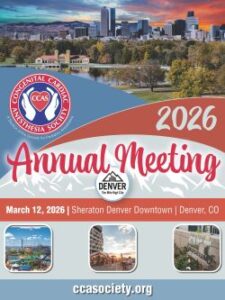Author: Nicholas Houska, DO - University of Colorado - Children’s Hospital Colorado
A six-week-old infant with a history of congenital central hypoventilation syndrome (CCHS) presents for an exam under anesthesia and rectal biopsy for suspected Hirschsprung’s disease. Which of the following cardiac arrhythmias is MOST likely to be coexistent in this patient?
EXPLANATION
Congenital central hypoventilation syndrome (CCHS), or “Ondines curse”, is an abnormality in the autonomic regulation of ventilation by the central nervous system not explained by any pulmonary, neurological, or muscular disorders. This results in a reduced or absent ventilatory response to hypercapnia and hypoxia, as well as other autonomic disorders.
The main presenting symptom of CCHS is acute or chronic hypoventilation. Depending on the phenotype, this may present as a neonate, infant, or less commonly later in life. Other conditions associated with CCHS include: Hirschsprung disease, neural crest tumors, esophageal dysmotility, and cardiac arrythmias.
In 2003, mutations in the PHOX2B gene were identified as the major genetic cause of CCHS. These mutations have further been classified as polyalanine repeat mutations (PARMs), or less commonly, non-PARMs. These genotypes have been found to exhibit different phenotypes of CCHS, each with varying onset, degrees of hypoventilation, and other autonomic disorders as mentioned in the previous paragraph. Transmission of the PHOX2B mutation is autosomal dominant, with a 50% risk of transmission to offspring.
Diagnosis is based on clinical signs and symptoms, exclusion of other causes of hypoventilation, and polysomnography which typically shows hypoventilation, worse while sleeping than awake, and most severe during non-rapid eye movement sleep. Concern for signs, symptoms, and other known manifestations of CCHS should prompt genetic testing for mutations of the PHOXB gene.
There is no pharmacologic management for the ventilatory symptoms of CCHS, and lifelong ventilatory support will be required for these patients. Depending on phenotype, this ventilatory support may be required only while asleep or 24 hours a day. Ventilation strategies may be non-invasive or invasive ventilation via tracheostomy, particularly in children. Support options include positive pressure ventilation, mask ventilation, and diaphragm pacing via phrenic nerve stimulation. The anesthesiologist caring for these children should be aware that even patients requiring nighttime ventilatory support only will often exhibit increased hypoventilation due to the effects of anesthesia. Preparation should be made for extended monitoring and ventilatory support in the perioperative period.
Patients with CCHS often exhibit cardiac arrythmias, typically sinus node dysfunction, sinus pauses, bradycardia, and prolonged R-R intervals. Manifestations of this autonomic dysfunction include syncope, postural hypotension, nocturnal hypertension, and increased risk of sudden death. Patients should be monitored with an annual ECG Holter monitor. Syncope should warrant extended Holter monitoring and/or consideration of pacemaker implantation. The current recommendation for CCHS patients is to follow the ACC/AHA guidelines for pacemaker placement. These guidelines recommend pacemaker placement for patients with R-R interval >3 seconds and recurrent syncopal episodes. Typically, a single chamber atrial pacemaker is sufficient. However, a dual-chamber device may be preferable due to the subsequent possibility of developing atrioventricular block. Patients with phrenic nerve pacers require special attention during pacemaker implantation to not cause cross interference between devices. In these patients, the cardiac pacemaker lead should be bipolar to avoid interference with the phenic nerve pacer.
For the patient in the stem, the most likely arrhythmia is sick sinus syndrome due to a known association of CCHS with sinus node dysfunction. Supraventricular tachycardias and ectopic atrial tachycardia are not commonly associated with CCHS.
REFERENCES
Trang H, Samuels M, Ceccherini I, et al. Guidelines for diagnosis and management of congenital central hypoventilation syndrome.Orphanet J Rare Dis. 2020;15(1):252.
Gronli JO, Santucci BA, Leurgans SE, Berry-Kravis EM, Weese-Mayer DE. Congenital central hypoventilation syndrome: PHOX2B genotype determines risk for sudden death. Pediatr Pulmonol. 2008; 43(1): 77-86.
Weese-Mayer DE, Rand CM, Khaytin I, et al. Congenital Central Hypoventilation Syndrome. 2004 Jan 28 [Updated 2021 Jan 28]. In: Adam MP, Feldman J, Mirzaa GM, et al., editors. GeneReviews® [Internet]. Seattle (WA): University of Washington, Seattle; 1993-2024. Available from: https://www.ncbi.nlm.nih.gov/books/NBK1427/
